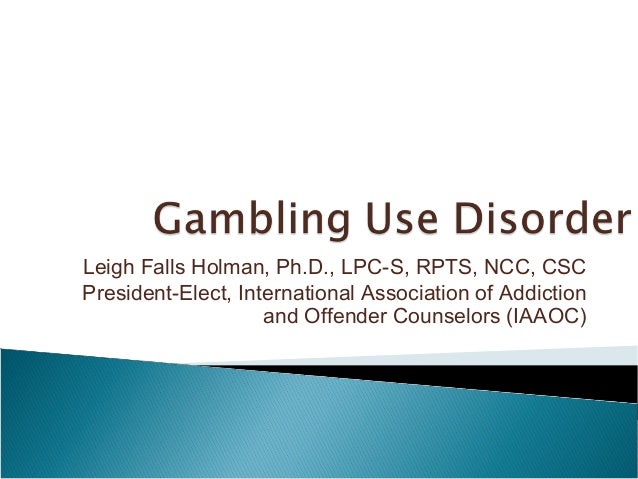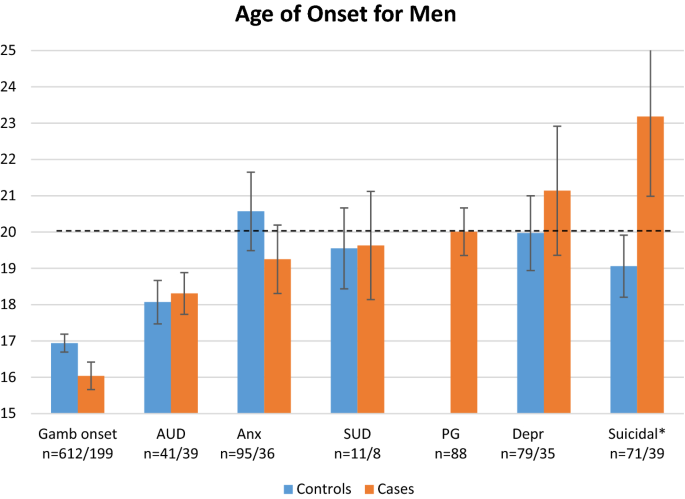It is important to recognize that most people can gamble without negative consequences. However, a significant percentage suffer major problems (about one in every 37 adults).
It’s been said that each disordered gambler affects six to 12 others in his or her life. Individuals, families and communities all suffer from disordered gambling, and, while it would be impossible to describe all of the repercussions associated with problem gambling, the following issues help to illustrate why problem gambling can be so destructive.
Economics
- The average gambling-related debt among person with a gambling problems in treatment is about $27,000 (Oregon Health Authority).
- One in ten (11.1%) disordered gamblers in Oregon treatment reported filing bankruptcy (Oregon Health Authority, 2013).
Disordered gambling and co-morbidity of psychiatric disorders among college students: an examination of problem drinking, anxiety and depression. Martin RJ (1), Usdan S, Cremeens J, Vail-Smith K. This study was conducted to investigate and clinically assess comorbid depression and its relevance in individuals suffering from gambling disorders. The DSM-V defines the condition of gambling disorder as a persistent and recurrent problematic gambling behaviour leading to clinically significant impairment or distress. Depression and Gambling Because gambling addiction is often associated with depression, watch out for signs that you are, or your loved one is, suffering from this debilitating disorder. Lethargy, fatigue, change in appetite and unhappiness are several symptoms out of many that someone is suffering from depression. Medication that's meant to help people suffering with depression can actually cause gambling addiction. See what pills turn you into a problem gambler here. (obsessive compulsive disorder.
Family Issues
Major depression is among the most common comorbid conditions in problem gambling. However, little is known about the effects of comorbid depression on problem gambling.
Disordered Gambling And Depression Dsm 5

- About half of those in Oregon gambling treatment report they had jeopardized or lost a significant relationship due to their gambling (Oregon Health Authority).
Abuse & neglect:
Disordered Gambling And Depression Disorder
- “Stress and financial crisis related to gambling problems may manifest within the home and result in the perpetration of violence against partners and/or children” (Afifi, Brownridge, MacMillan & Serene, 2010).
- “Problem gambling was associated with increased odds of the perpetration of minor and severe dating violence, while pathological gambling was associated with increase odds of minor and severe dating violence, severe marital violence, and severe child abuse” (Afifi, Brownridge, MacMillan & Serene, 2010).
- Research consistently shows higher rates of pathological gambling in teens whose parents gamble excessively (Gupta & Derevensky, 1997; Jacobs, 2000; Wallisch & Liu, 1996).
- Children of person with a gambling problems have been shown to have higher levels of use for tobacco, alcohol, drug use, and overeating than do their classroom peers (Gupta & Derevensky, 1997).
- It’s not certain whether gambling is a method of coping with abuse, or vice versa.

Suicide/Depression
About one third of person with a gambling problems in Oregon treatment had serious suicidal thoughts, and about 5 percent had actually attempted suicide.
- A major depressive disorder is likely to occur in 76 percent of pathological gamblers (Unwin, Davis, & Leeuw, 2000).
- A Nova Scotia study listed problem gambling as a factor in 6.3 percent of suicides (2004). In Nova Scotia, gambling questions are asked specifically along with suicide investigations.
- An estimated two percent of suicides in Canadian provinces of Alberta, Quebec, and New Brunswick were related to problem gambling issues (Messerlian, Youth Gambling International Newsletter, Summer 2005).

Disordered Gambling And Depression Disorders
Crime

Disordered Gambling And Depression Screening Tool
- Approximately 1/4 of those in Oregon gambling treatment report committing illegal acts to obtain gambling money (Oregon Health Authority)
- The vast majority of gambling-related crimes are non-violent; embezzlement, check forgery, credit card theft, fenced stolen goods, tax evasion, insurance fraud, employee theft and fraud are common gambling-related crimes.